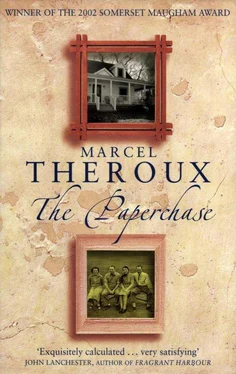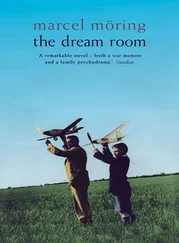She was an American from Louisiana and so dark-skinned that unkind speculation murmured of African forebears and a bend sinister in her family crest. It was envy. Her skin was the gold of the Scythians; gold that put gold to shame. And what shall I write of her eyes? Her black eyes, romany black, black of the rarest jade, the slow, inevitable black of death itself before which every man stands powerless.
Her father had sent her to London to complete her education — though it seems unlikely he had in mind the scandalous liaisons with older men, or the appetite for gambling, or the dozen other qualities uncharacteristic of her sex that made her the object of rumour in the circles in which we moved.
It was with some little apprehensiveness that I introduced myself to her during the interval of a comic operetta. I had been relieved of my virginity in a perfunctory encounter with a prostitute in a doorway off Air Street during one of the long vacations, but my experience of women my own age and class was narrow.
Miss Eden’s sloe-eyed glance initially reduced me to a nervous mumbling, but gradually my confidence asserted itself in sallies of wit. At the commencement of the second act, I pressed her hand and invited her to an exhibition of paintings by my unfortunate friend Doriment, who was then enjoying growing celebrity and showed no signs of the madness that was to unhinge him in his later years.
On the appointed day, I arrived early and spent twenty minutes pacing up and down on the pavement and adjusting my tie in the window of a wine merchant’s facing the gallery. She alighted from her carriage without a chaperone and greeted me with a quip and a kiss.
I escorted her into the exhibition and followed her as though hovering on winged feet. Something fast and urgent swept me along with an exquisite motion.
I cannot remember one word that she and I said to each other, though we were never silent. A deeper communication was conducted with looks, the inclination of a head, the light pressure of her hand, and the air between us seemed to hum with invisible signification like the wires of a telegraph.
Or so I hoped. The counterpart to my elation was a profound doubt that she held my feelings in any but the lightest regard. She loves me; she loves me not: nothing was ever still, it was either budding or dying: the systole and diastole of some distant heart, filling with hope and then being emptied of it. It was divine; it was infernal.
I courted her for weeks. I knew she enjoyed my company, but all the time we sparred with and teased one another, I could not guess if her true feelings went any deeper. I was one of a number of young and not-so-young men, hopefully besieging her with their attentions. They would be camped in the drawing room of the family she lived with, which included a less well-favoured daughter of about Serena’s age called Alice, and compete for the meagre privileges of opening a door for her, carrying her needlework, or reading to her from the newspaper.
Having made some initial progress with her at Doriment’s exhibition, I became embroiled in this interminable siege along with her other suitors, each of whom seemed less concerned with advancing his own cause than ensuring that no one else had the opportunity to advance his.
It was while things stood at this impasse that I finally received a communication from Mr Ricketts. He gave me to understand that my eventual posting would not now be to the north of the country, but to one of the districts in the south. I forbore from pointing out the irony of this decision. Alongside two hundred other aspiring administrators, I had sat two weeks of examinations in a hall in Burlington House. (One of the invigilators later informed me, in confidence, that my marks were among the highest ever attained.) [ Patrick appears to have goneback to this section at a later dateand deleted the word‘among’ — DM .] Alone of all the candidates, I had offered papers in Punjabi and Urdu. Now, by the wayward logic that I would find characteristic of my employment in the dominions, I was being despatched to the south of the subcontinent, where my painstakingly acquired languages would be as useful to me as Croat, or the secret tongue of Euskaadi.
Undaunted, I booked my passage, reacquainted myself with Sanskrit grammar and bought primers in Tamil, Telugu and Malayalam. I also amassed a small library for the crossing, comprising histories of the region, several volumes on native custom, and a general work on hydrology.
Accordingly, I spent less time in my futile courtship of Miss Eden and was more often to be found at home, studying (or rather, trying to study) my primers. Even then I found myself abstracted, unable to concentrate on anything but learning the endearments in my new languages that I lacked the courage to say in English. In my Telugu grammar, the use of the optative was explained by means of an idiomatic expression that compared a woman’s breath to the scent of persimmons. I copied this out in the original and sent it to Serena with my kindest regards. At least it was a declaration of sorts, if not one she would be able to understand.
The next time I visited her for tea, there were two suitors and myself. I felt disinclined for the witty small talk that passed among that circle for conversation and directed most of my attentions towards Alice, who was a kindly young bluestocking with whom I was to conduct a correspondence two decades later while researching a — needless to say — unfinished monograph on the life cycle of the sand fly.
At the end of the afternoon, I rose to leave. Serena was playing cards with her two besiegers, who were undoubtedly glad to have seen me off. She had made no allusion to the note I had sent her, but as I said goodbye, she shot me a look so full of something that I can see her dark eyes now, as though they were imprinted upon my brain as on a daguerreotype. What she meant by that look, however, was as incomprehensible to me as my Telugu note must have been to her.
I had left the house and was walking down the glass-covered portico that led away from its front door when her low voice halted me. She called out my name.
I turned round: the vestigial wings on my ankles gave a flutter and raised me two inches above the pavement.
‘Stop bothering me,’ she said, dark fire flashing from her eyes.
‘Bothering you?’ My voice was the merest whisper. The wings on my heels had become a pair of rusty dumb-bells.
‘I’m very impressionable,’ she said, adding a reprise of the look she had offered me over the playing cards. ‘Please don’t trifle with me.’ My feet had wings once more.
‘I believe that if you had any inkling of my true feelings for you, you would not make that accusation,’ I said.
‘I hardly know you,’ she murmured.
‘That is little to be wondered at. The company here is not congenial to our deeper acquaintance. If you might be persuaded to meet me on more intimate terms … At my rooms, perhaps, for tea?’
‘Yes,’ she said, with a look that has no verbal equivalent in any language known to me, but which contained admixtures of love and longing, and was sharpened by a sense that she was struggling to overbear the reluctant voice of her conscience.
She came to tea with me on the hottest afternoon of the hottest summer of any I have known in a city I have since come to know well. I had opened every window to its fullest extent and placed vases of iced water around my rooms in a vain attempt to reduce the temperature.
The stiff fabric of my collar and cuffs restricted the flow of blood through my body, causing my suppressed pulse to throb in my neck and wrists. I felt the discomfort of the scold in the pillory, of the innkeeper condemned to the stocks for watering his beer. My tongue clave to the roof of my mouth. The china cup chattered in its saucer as I passed it to her with a trembling hand. She steadied mine with hers, placed the cup on an open dictionary, then led me to my bedroom. I was her first lover.
Читать дальше












